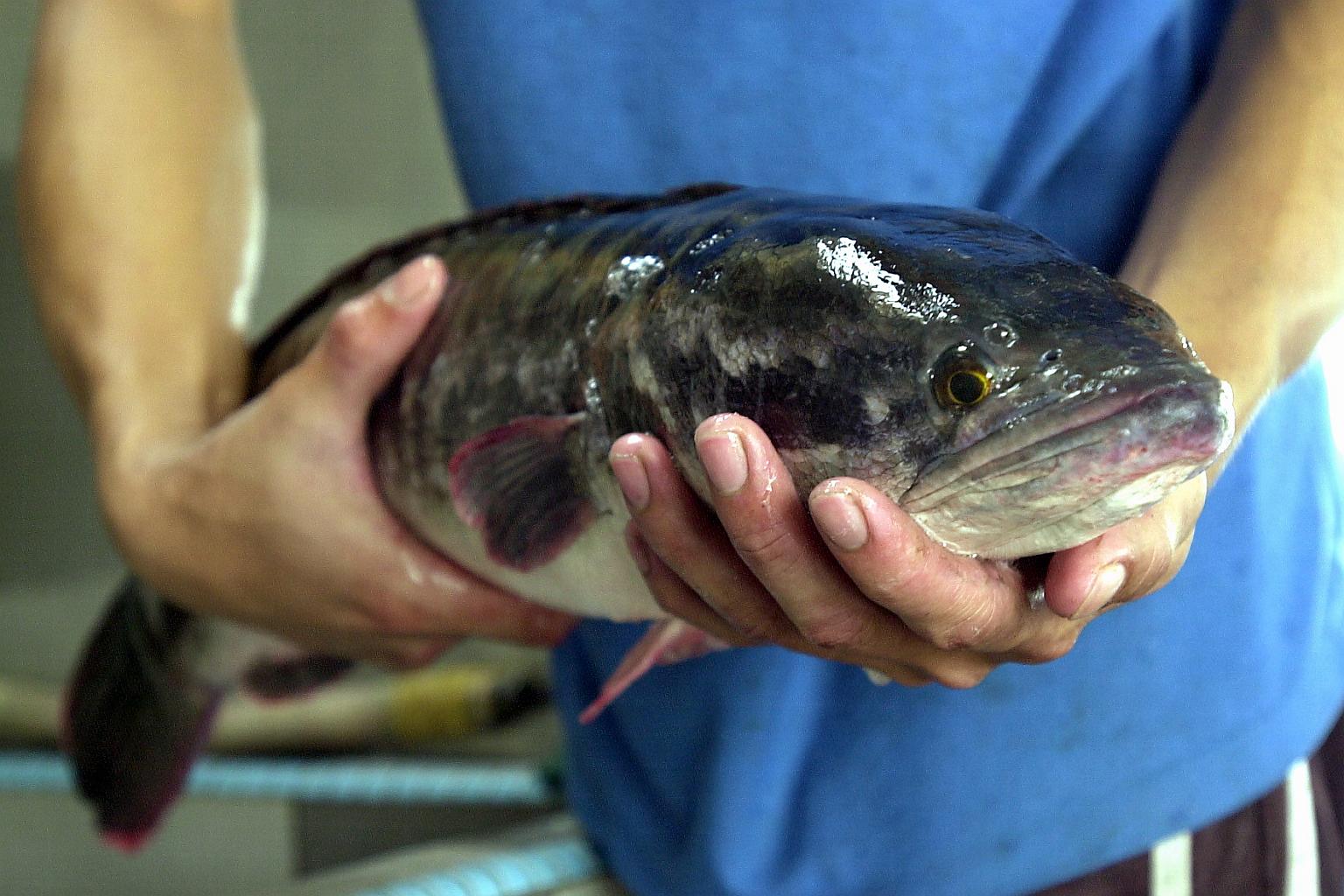Traces of GBS bacteria found in 2 types of fish, stallholders asked to halt sales of raw fish dishes
Sign up now: Get ST's newsletters delivered to your inbox

A snakehead fish.
PHOTO: ST FILE
Jalelah Abu Baker
Follow topic:
SINGAPORE - Foodstall holders have been asked to temporarily stop selling raw fish dishes using two types of fish which have been found with traces of Group B Streptococcus (GBS) bacteria.
The two types of fish are: Song fish, also known as Asian Bighead Carp; and Toman fish, also known as Snakehead fish.
The Ministry of Health (MOH) also found a link between the consumption of raw fish and GBS infections in some cases it investigated.
The joint statement from the authorities came in the wake of a surge in the number of GBS infections.
"Interim analysis of MOH's investigation on a limited number of identified GBS cases found an association between the consumption of raw fish and GBS infections, although more cases will need to be studied for a more definite conclusion," said the statement issued on Friday by the Ministry of Health, Agri-Food & Veterinary Authority of Singapore , and the National Environment Agency.
From Jan 1 to June 30 this year, MOH received reports of 238 cases of GBS infections from public hospitals - compared with an average of 150 cases per year in the past four years. More than half the cases were over the age of 55, similar to previous years.
GBS is a common bacterium found in the human gut and urinary tract of about 15 per cent to 30 per cent of adults without causing disease. However, GBS may occasionally cause infections of the skin, joints, heart and brain, said MOH.
The bacteria can also be found in fish, but this does not pose an issue if the fish is well cooked before consumption.
The authorities were investigating a recent message that went viral that claimed that there was a bacteria outbreak from eating contaminated raw fish.
MOH said that it has been alerted by hospital doctors to an increase in cases of GBS infection. One of the larger hospitals here has treated 76 cases of GBS this year, higher than the average of about 53 each year in the past five years.
"10 of these cases reported consumption of raw fish. Investigations are on-going as to the reasons for the increase in cases," said the statement.
"Vulnerable groups of people, especially young children, pregnant women or the elderly should exercise caution by avoiding raw ready-to-eat food," the statement added, referring to dishes such as raw oysters and sashimi.
MOH said in that the strain is a "common bacterium that colonises the human gut and urinary tract" and does not usually cause disease in healthy individuals.
"There has not previously been any proven link between eating fish, raw or otherwise, and GBS disease. However, in adults, GBS may occasionally cause infections of the skin, joints, heart and brains. The risk factors for GBS infection include underlying chronic or co-morbid conditions."
The authorities are conducting further tests, and they will provide an update once the investigations have been concluded.

